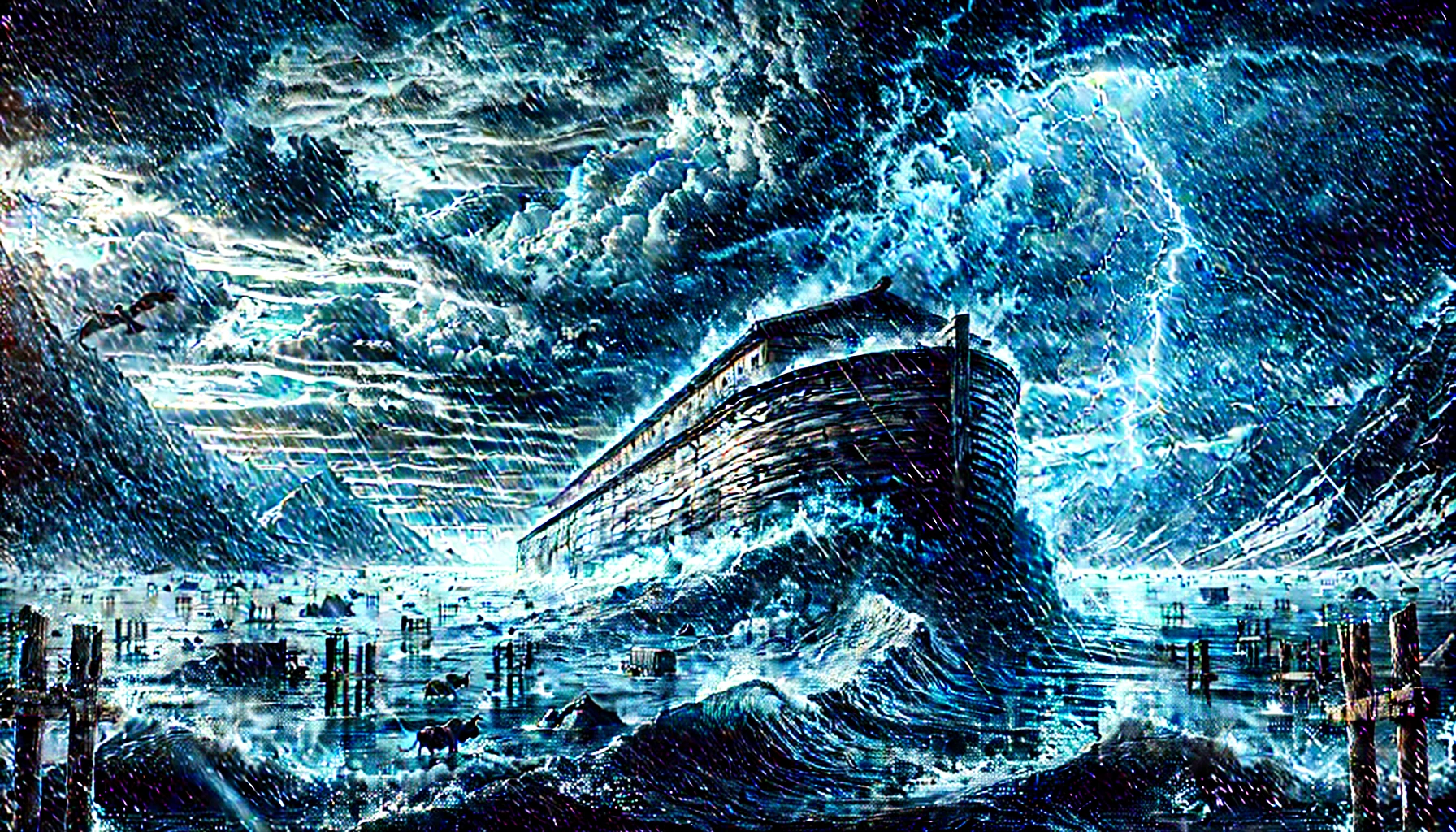The story of Noah’s Flood, as recorded in the book of Genesis, has been a topic of great debate for centuries. While skeptics dismiss it as myth, overwhelming evidence from various disciplines—including geology, archaeology, and ancient historical accounts—points to a catastrophic flood event that shaped human civilization. Moreover, Jesus Christ Himself referenced the days of Noah as a real historical event, highlighting its significance for understanding both judgment and salvation (Matthew 24:37-39). In this article, we will examine the evidence for the Flood and its implications.
Biblical Testimony and Prophecy
The Bible presents the Flood as a global event that wiped out all life except for Noah, his family, and the animals aboard the ark (Genesis 6-9). Beyond Genesis, multiple Biblical passages affirm its historicity. The prophets Isaiah (Isaiah 54:9) and Ezekiel (Ezekiel 14:14) reference Noah and the Flood, and the apostle Peter warns that scoffers will deny this cataclysmic judgment, much like they will deny the coming judgment (2 Peter 3:3-7).
Global Flood Myths and Historical Accounts
One of the most compelling pieces of evidence for Noah’s Flood is the existence of flood legends found in nearly every ancient culture. These stories, though varying in details, all describe a great deluge that wiped out most of humanity. Notable examples include:
- The Epic of Gilgamesh (Mesopotamian): A story strikingly similar to Noah’s account, featuring a righteous man, a divine warning, and a massive boat that preserves life.
- Ancient Chinese Legends: Stories of a great flood and a righteous man saving humanity.
- Mayan and Incan Accounts: Native American tribes across the continents recount massive floods that reshaped the world.
- Hindu Flood Myth: The story of Manu, a righteous man saved from a great flood.
Such widespread accounts suggest a common memory of a catastrophic event in humanity’s distant past.
Geological and Archaeological Evidence
Modern science has uncovered geological evidence supporting the idea of a massive flood event:
- Marine Fossils on High Mountains: Fossils of marine creatures have been found on top of the Himalayas, Andes, and other high-altitude locations, suggesting that these regions were once underwater.
- Sediment Layers and Rapid Burial: Large fossil graveyards, filled with bones of various species mixed together, indicate sudden and catastrophic water-related events.
- Megaflood Evidence: The discovery of the Channeled Scablands in Washington, USA, provides an example of how a massive, rapid flood can dramatically alter landscapes.
- The Black Sea Deluge Hypothesis: Researchers have found evidence that a massive flood inundated the Black Sea region around 5,000 B.C., which some suggest may be linked to the Biblical Flood account.
Jesus' Warning and the Flood’s Relevance Today
Christ’s words in Matthew 24:37-39 indicate that the days before His return will mirror those of Noah—an era marked by widespread wickedness and disregard for divine warnings. The Flood was both an act of judgment and a means of salvation for Noah and his family. Likewise, Christ offers salvation to those who trust in Him, while judgment awaits those who reject God’s truth.
Notable Idiots That Deny Noah's Flood
Here are some notable figures who have publicly denied the historicity of Noah's Flood, often citing scientific, geological, or historical reasons:
- Richard Dawkins – Evolutionary biologist and outspoken atheist who argues against the literal interpretation of Biblical events, including the Flood.
- Bill Nye – Science educator and mechanical engineer who has debated against young Earth creationism and rejects the idea of a global flood.
- Neil deGrasse Tyson – Astrophysicist who often criticizes Biblical accounts when they conflict with scientific evidence.
- Lawrence Krauss – Theoretical physicist who has written extensively about the conflict between science and religious literalism.
- Stephen Jay Gould (1941-2002) – Paleontologist and evolutionary biologist who rejected the global flood on scientific grounds.
- Ken Miller – Biologist and author, known for opposing young Earth creationist interpretations of the Bible, including the Flood narrative.
- Michael Shermer – Science historian and founder of Skeptic magazine, who argues against Biblical literalism.
- P.Z. Myers – Evolutionary biologist and critic of creationism, dismisses the idea of Noah’s Flood as a myth.
These individuals generally argue that geological and archaeological evidence contradicts the idea of a worldwide flood, favoring so called "scientific explanations" for Earth's development instead. These people actually have influence over the general narrative of people's belief systems today reflected in all sorts of academia disciplines and studies. You will find these people "willfully ignorant" of the facts if it opposes their evolutionary worldview.
Conclusion
Despite modern skepticism, the evidence for a catastrophic flood is abundant. From global flood legends and geological formations to the Biblical testimony affirmed by Jesus Himself, the Flood of Noah stands as a historical reality. Those who dismiss it ignore both the physical evidence and the prophetic warnings in Scripture. Just as God provided the ark as a means of salvation, He offers salvation through Jesus Christ today. The question remains: will we heed the warning, or will we scoff as those in Noah’s day?
#theElect #endureToEnd #theElect #messiah2030 #messiah2033 #thegreattribulation
